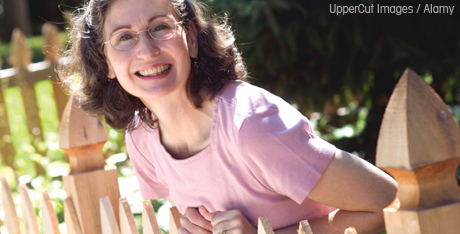They say what we see in others is what we need to realize about ourselves … maybe especially so if we can’t stand the view.
She’s a new neighbor with a chatter habit. Suddenly, the picket fence isn’t high enough. Mabel is yakking my ear off, spinning her life story in a nutshell the size of New Jersey. She pauses to pontificate, “I regret nothing.”
Living next door to this paragon of virtue threatens to break my spirit. But how can that be?
I’ve got plenty of regrets, and keep them to myself, but my brain starts ticking them off, the latest being my regret at coming out to greet the new neighbor over the back fence. Mabel’s on a smug, self-satisfied roll that has the effect of dredging up my long-suppressed regrets, not so much for, say, passing on a scholarship to law school as for my personal peccadillos, the actions or inactions that negatively affected others.
As she natters up another sanctimonious “no-regrets” scenario, Mabel’s lilywhite life story dredges up more guilt-infested memories, until my thoughts drift back decades and every regrettable act I’ve committed from the age of reason until now resurrects in the halo of Mabel.
Fifth grade, in Miss Peacock’s class: When she opens the window to yell at some truants outside, a classmate whispers, “Push her out!” and I try. (In truth, my brother pushed her, not me.) Mabel wouldn’t have done that. Then there’s college in Mexico City, when I dabbled in peyote. Mabel was probably drug-free and a virgin until marriage, at least in her sanitized self-depiction.
Inadvertently, Mabel has kicked up the dust devils of a lifetime of sins that live in my heart and haunt my spirit. I recall how those first innocent misdemeanors mutated to more reproachful behavior as I navigated the swells and cyclones of an adult world.
Leaning hard against the picket fence, I glance down to check if my feet have developed into cloven hooves. I brush my hand across my shirt, feeling for the scarlet letter. My impromptu sinventory smacks of Satan’s shopping list. Meanwhile, Mabel’s pristine trumpeting tempts me to commit another sin; I’m thinking how to run her out of the neighborhood. Living next door to this paragon of virtue threatens to break my spirit. But how can that be?
Sure, I’ve behaved badly at times. A wise person once suggested that the victim/s of my wrongdoing/s have likely forgotten what I did to them, or failed to do; even without my apologies, they’ve likely moved on in their lives, perhaps in their hearts even forgiving me. Chances are they’ve actually forgotten me. Yet the shame engendered from wrongdoings clings like body odor on a white linen shirt, stains I created but apparently can never expunge.
Taking responsibility for breaking society’s moral standards is paramount in eliminating guilt; shame is far more difficult to expunge. The act of trying to set things right, of paying one’s dues, might settle the social debt. Contrition might level the playing field. Still, festering shame can malinger and sap the spirit, serving no good purpose. Shame can bore into the very core of self-esteem, gnaw like a parasite, and consume the spirit. Take my word for it: More than innocence is lost.
No one ever punishes me harder than I punish myself. Everyone in Heaven and on Earth can forgive me, but if I can’t forgive myself, I’m robbing myself and society of the best I have to offer. That’s the real shame.
As death row inmates often realize, it’s never too late to ask for forgiveness, and as important, to forgive themselves. The rest of us can do the same, with the added benefit of reentering society more powerful than ever. The Buddha said, “You yourself, as much as anybody in the entire Universe, deserve your love and affection.”
Like Mabel, some folks apparently foster no regrets. They are never haunted by guilt, let alone shame, abhorring nothing they’ve done along their boring life-sucking path to backyard bragging. Only those who take risks in life will stumble over the temptations of an adventurous path.
The aforementioned wise person also quoted to me Rabbi Hillel the Elder (circa 110 BCE–10 CE): “If I am not for myself, who will be for me? And when I am for myself, what am I?” And, “If not now, when?”




Sources
Many qualified experts offer guidance on forgiving oneself. A thoughtful Web browsing might help locate the guide best suited to your personal journey.